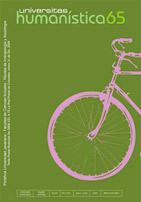Abstract
This paper discusses statistical data about the implementation of the quota system in the State University of Rio de Janeiro (UERJ). In spite of the huge national debate about the legal foundations of quotas, little attention has been paid to the way quotas actually work where the system has been implemented. Against expectations, figures suggest that quota students perform similarly to other students and show lower dropping out rates. In addition to this, UERJ starts developing a new identity around the fact that quotas diversify the pool of students and mix people of different social and racial background. However, the percentage of quota students enrolling every year in academic courses has constantly decreased since quotas were introduced in 2003. Reasons for this phenomenon have been hardly explored and are presented as hypotheses due to the lack of research and the difficult access to the pool of statistical data hold by the University.
This journal provides immediate open access to its content on the principle that making research freely available to the public, encourages greater global exchange of knowledge.
The journal Universitas Humanística is registered under a Creative Commons Attribution 4.0 International Public License. Thus, this work may be reproduced, distributed, and publicly shared in digital format, as long as the names of the authors and Pontificia Universidad Javeriana are acknowledged. Others are allowed to quote, adapt, transform, auto-archive, republish, and create based on this material, for any purpose (even commercial ones), provided the authorship is duly acknowledged, a link to the original work is provided, and it is specified if changes have been made. Pontificia Universidad Javeriana does not hold the rights of published works and the authors are solely responsible for the contents of their works; they keep the moral, intellectual, privacy, and publicity rights.
Approving the intervention of the work (review, copy-editing, translation, layout) and the following outreach, are granted through an use license and not through an assignment of rights. This means the journal and Pontificia Universidad Javeriana cannot be held responsible for any ethical malpractice by the authors. As a consequence of the protection granted by the use license, the journal is not required to publish recantations or modify information already published, unless the errata stems from the editorial management process. Publishing contents in this journal does not generate royalties for contributors.


